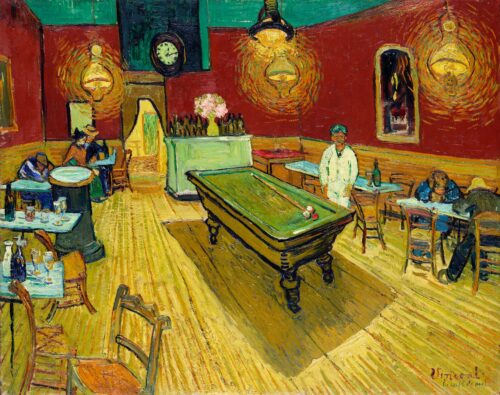Game rooms, with their vibrant atmospheres and recreational activities, have long been a staple of social gatherings. Among the various elements that make up these spaces, pool tables stand out as a particularly powerful catalyst for social bonding. The psychology behind why pool tables foster connection lies in their ability to blend competition, collaboration, physical engagement, and shared experiences. This article delves into the psychological mechanisms at play and explores why pool tables, in particular, enhance social interactions in game rooms.
The Social Power of Shared Activities
Humans are inherently social creatures, wired to seek connection through shared experiences. Game rooms, by design, provide an environment conducive to interaction, offering activities that require participation, communication, and engagement. According to research in social psychology, shared activities—particularly those involving physical and mental effort—strengthen interpersonal relationships by fostering a sense of mutual investment and camaraderie.
Pool tables amplify this effect through their unique combination of accessibility and challenge. Unlike highly specialized games that may exclude novices, pool is approachable for players of varying skill levels. Its rules are straightforward, yet the game demands focus, strategy, and precision, creating an ideal balance that encourages participation from all. This inclusivity allows diverse groups to engage, breaking down social barriers and creating a shared sense of purpose.
Competition and Cooperation: A Delicate Balance
Pool tables create an environment where competition and cooperation coexist, a dynamic that psychologists argue is key to building strong social bonds. Competitive games stimulate the release of dopamine, a neurotransmitter associated with reward and pleasure, which heightens engagement and excitement. When players compete in pool, whether one-on-one or in teams, they experience the thrill of striving for victory, which can energize interactions and create memorable moments.
However, pool also encourages cooperation, particularly in team-based formats like doubles. Teammates must strategize together, discuss shots, and support one another, fostering trust and mutual reliance. Even in competitive matches, players often engage in lighthearted banter or offer praise for a well-executed shot, which builds rapport and reduces social tension. This blend of rivalry and respect aligns with the concept of “prosocial competition,” where the act of competing strengthens relationships rather than creating conflict.
The Role of Physical Engagement
Physical activity is another critical factor in the social bonding facilitated by pool tables. Unlike sedentary activities like video games or board games, playing pool requires players to move around the table, lean in for shots, and engage their bodies in a tactile way. This physicality triggers the release of endorphins, which enhance mood and reduce stress, making players more open to social interaction.
Moreover, the physical act of playing pool creates opportunities for nonverbal communication. Players often use gestures, eye contact, or body language to signal encouragement, acknowledgment, or playful teasing. These subtle cues strengthen interpersonal connections, as they allow individuals to express themselves in ways that words alone cannot. The shared physical space of the pool table also fosters a sense of intimacy, as players occupy a defined area where they can easily interact and observe one another’s actions.
Creating a Safe Space for Interaction
Game rooms, particularly those centered around pool tables, serve as “third places”—informal gathering spots outside of home and work where people can relax and connect. According to sociologist Ray Oldenburg, third places are essential for building community and combating social isolation. Pool tables enhance this effect by providing a focal point for interaction, drawing people together in a low-pressure environment.
The structure of pool games also contributes to this sense of safety. The turn-based nature of the game ensures that everyone has a chance to participate without feeling overwhelmed or excluded. Additionally, the informal setting of a game room encourages authenticity, as players feel free to express their personalities through their playing style, humor, or conversation. This authenticity fosters trust, a cornerstone of meaningful social bonds.
Nostalgia and Cultural Resonance
Pool tables carry a cultural weight that enhances their psychological impact. For many, they evoke nostalgia, conjuring memories of carefree moments spent in arcades, bars, or family basements. This emotional connection taps into the psychological concept of “collective memory,” where shared cultural symbols strengthen group identity. When people gather around a pool table, they’re not just playing a game—they’re participating in a ritual that feels familiar and comforting, reinforcing a sense of belonging.
The aesthetic appeal of pool tables also plays a role. Their sleek design, vibrant felt, and satisfying clack of balls create a sensory experience that draws people in. This sensory stimulation engages multiple parts of the brain, making the experience more immersive and memorable, which in turn deepens the emotional connections formed during play.
Fostering Communication and Emotional Connection
Pool tables naturally encourage conversation, both during and between games. The pauses between shots provide moments for players to chat, share stories, or engage in playful trash-talking, all of which strengthen social ties. According to communication theory, these small, informal interactions—known as “phatic communication”—are essential for building and maintaining relationships. They allow individuals to connect on a human level without the pressure of deep or serious discussion.
Furthermore, pool games often lead to moments of shared triumph or defeat, which can evoke powerful emotions. Whether it’s celebrating a clutch shot or laughing off a missed cue, these shared emotional experiences create a sense of unity. Psychologists note that experiencing emotions together, even minor ones, can significantly enhance group cohesion, as it signals mutual understanding and empathy.
Inclusivity and Social Levelling
One of the unique strengths of pool tables is their ability to level social hierarchies. In a game room, distinctions like age, profession, or social status often fade as players focus on the game. This “social leveling” effect, as described in psychological studies, reduces self-consciousness and allows individuals to connect as equals. The pool table becomes a neutral ground where everyone is judged by their skill and sportsmanship, not their external identity.
This inclusivity is particularly valuable in diverse groups, where differences in background or personality might otherwise hinder connection. By providing a common goal—sinking the next shot or winning the game—pool tables create a shared focus that unites players, fostering a sense of community.
The Role of Mastery and Skill Development
Pool also taps into the psychological principle of mastery, where individuals derive satisfaction from improving their skills. As players practice and refine their technique, they experience a sense of accomplishment, which boosts self-esteem and confidence. When shared with others, this process of growth becomes a bonding experience, as players encourage one another, share tips, or celebrate progress.
This dynamic is particularly evident in casual settings, where players of different skill levels can learn from one another. A novice might feel empowered by a veteran’s advice, while the veteran enjoys the role of mentor. This exchange of knowledge and support strengthens interpersonal connections and creates a sense of mutual investment.
Conclusion
The psychology of game rooms reveals why pool tables are such powerful tools for social bonding. By combining competition, cooperation, physical engagement, and shared emotional experiences, pool tables create an environment where people can connect authentically and meaningfully. Their accessibility, cultural resonance, and ability to foster communication make them a unique feature of game rooms, transforming casual interactions into lasting relationships. Whether in a bar, a community center, or a home basement, the pool table remains a timeless catalyst for bringing people together, proving that sometimes, a simple game can have a profound impact on human connection.

